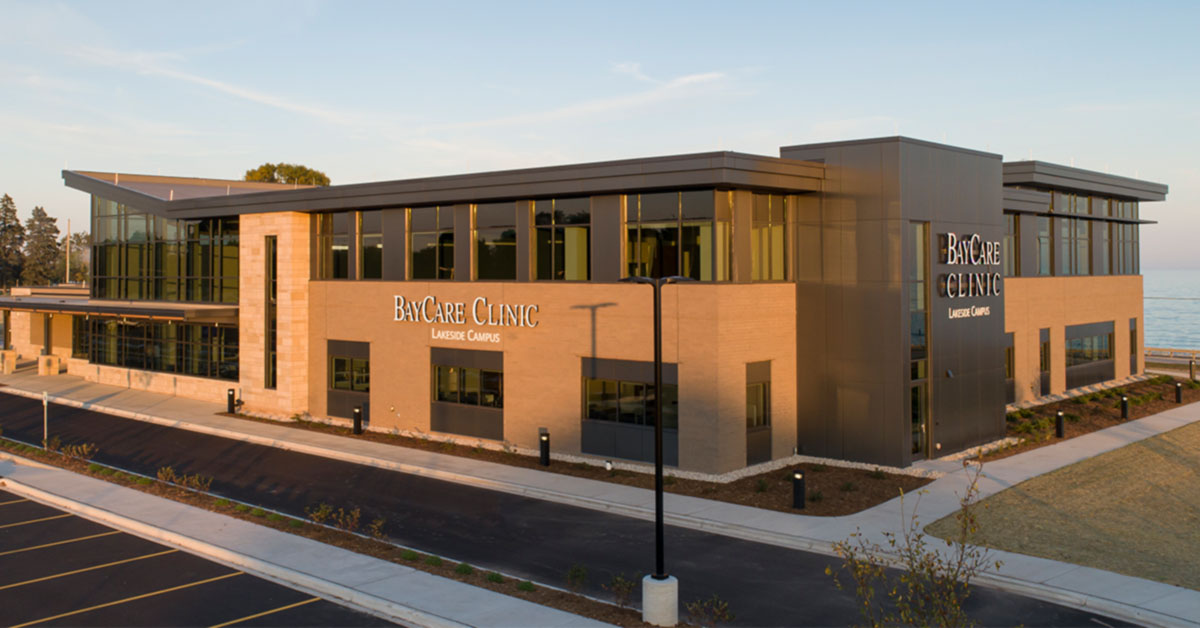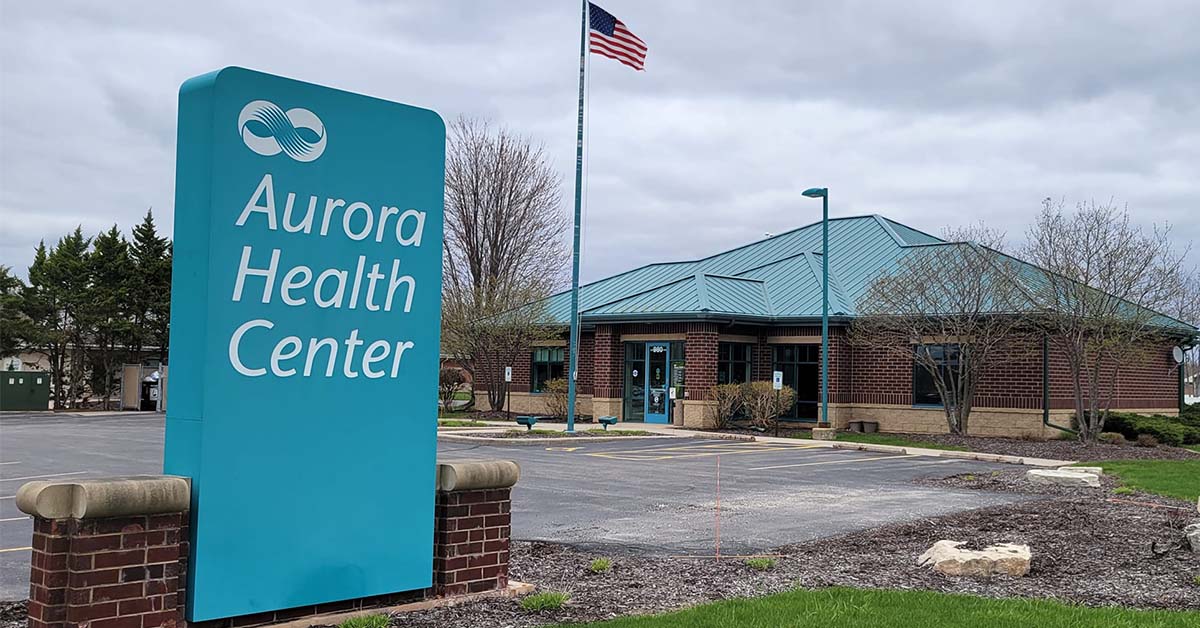What to Expect
Orthopedics & Sports Medicine
What can I expect when I visit Orthopedics & Sports Medicine BayCare Clinic?
People who choose Orthopedics & Sports Medicine BayCare Clinic can expect exceptional care from the first visit through the end of healing. We treat each person as an individual. We work to restore their desired quality of life. We recognize the importance of maintaining an active lifestyle and will be with you every step of the way to achieve your goals.
The best outcome from any orthopedic surgery or procedure happens when all pre-surgical instructions are followed. Our support staff will be available to explain the details of your surgical procedure and to answer any questions you may have.
What can I expect before having orthopedic surgery?
The best outcome from any orthopedic surgery or procedure happens when all pre-surgical instructions are followed. Our support staff will be available to explain the details of your surgical procedure and to answer any questions you may have.
How do I get ready for orthopedic surgery?
Pre-surgical screening and assessment with a primary care provider is not always required. If needed, it should occur within 4 weeks of surgery whenever possible. Sometimes, an advance appointment with physical or occupational therapy – you may hear it described as “pre-hab” – will be made to provide further education about your upcoming recovery.
If you are having a total joint replacement, you must attend Total Joint class before surgery. The information provided during this class will help you understand how to best prepare for your joint replacement.
What medications should I stop taking before orthopedic surgery?
To prepare for orthopedic surgery, stop taking all non-steroidal anti-inflammatory (NSAID) medications 5 days before your procedure unless instructed otherwise. Those include ibuprofen, Motrin, Aleve, Naprosyn and naproxen.
People who take aspirin are urged to ask their prescribing physician whether they should stop taking it 5 days before surgery.
People who take Coumadin, warfarin, Plavix or Aggrenox are urged to ask their primary care physician when they should stop taking it before surgery. Most times, people stop taking it 4 to 7 days before surgery.
People who take Celebrex, Mobic or Relafen may take them until the night before surgery.
Tylenol, or acetaminophen, may be taken as needed.
What do I need to bring to the hospital before having joint replacement surgery?
Please bring the following to the hospital before having joint replacement surgery:
- A list of your medications.
- Your medical history.
- Your emergency contact information.
- Clothes and shoes that you plan to wear at home after being discharged. Your therapy team will work with you on activities such as dressing and walking safely. Pants should be loose-fitting to allow the incision to be accessed easily.
- If you own a walker, cane or crutches, bring them so we can inspect them and instruct you on their proper use. If you do not have these supplies, but will need them after being discharged, these will be distributed to you.
- If you use a home sleep apnea machine such as a CPAP, bring this with you. It will be used while you are in the hospital.
- If you use an inhaler, bring it to the hospital with you.
- Your insurance information.
What should I leave at home when having joint replacement surgery?
Leave cash, credit cards and valuables at home.
Will I need a blood transfusion when having joint replacement surgery?
In some cases, a blood transfusion may be needed after joint replacement surgery. Your blood counts will be monitored daily while you are in the hospital, along with symptoms of lightheadedness. Depending on those results and how you are responding to therapy, the doctor may advise that you receive a blood transfusion.
Arrangements can be made for you to donate blood a few weeks before surgery. Therefore, if you need a transfusion, your blood can be given back to you. Otherwise, you will receive blood from the American Red Cross blood bank. All blood is thoroughly inspected and deemed safe before it is given to those who need it.
To reduce the potential need for a blood transfusion, we suggest that you begin taking an iron supplement (ferrous sulfate 325 mg twice a day with food) 1 to 4 weeks before your surgery. If you have stomach ulcers, issues with nausea or cannot tolerate the iron, it is not required.
To prevent or minimize constipation after surgery, take an over-the-counter stool softener starting 1 or 2 days before surgery while taking an iron supplement. Some products combine an iron supplement with a stool softener.
What happens when I’m discharged from the hospital?
People undergoing an outpatient or same-day procedure will be discharged the same day as your procedure. People undergoing a procedure that requires an observation stay will be discharged within 24 hours of being admitted. People undergoing a procedure that requires an inpatient stay will be discharged within a few days.
The discharge timeframe varies depending on the type of procedure performed. It is complete only after you have met your pain goals, therapy goals, are medically stable and have recovered from anesthesia.
Same-day procedure: Discharge instructions and prescriptions will be reviewed with you and given to you at the time of discharge. Arrangements should be made in advance for an adult to drive you home. You should also have someone stay with you the first night after having anesthesia.
Observation and inpatient procedure: For people staying one or more nights in the hospital, your doctor will decide when you will be discharged and give any special instructions. Therapy will help determine when you are ready for discharge. Therapists will give a recommendation on whether you should be discharged to home, have home health care or go to a skilled nursing facility. Discharge instructions and prescriptions will be reviewed and given to you at the time of discharge. A family member or friend may drive you to your discharge destination, but transportation can be arranged if needed.
Discharge instructions include specifics regarding:
- Bathing
- Medication (how much and when to take)
- Wound care
- Changing dressings
- Pain management
- How and when to use a walker, cane or crutches
- Physical activity
- Resuming sexual relations
- Driving
- Returning to work
- Things to watch for and report to the doctor
Will I have home-care services after discharge?
Home-care services depend on your needs during recovery from orthopedic surgery and your insurance coverage. Home-care services include in-home physical therapy, in-home occupational therapy and nursing care. The physician, physical therapist, case manager and home care coordinator will help with those decisions and arrangements.
When can I go back to work after orthopedic surgery?
Our goal is to get you back to work in some capacity as soon as it is safe to do so. This usually is discussed at your first post-operative appointment, which takes place 1 to 2 weeks after surgery. At that time, you will get a detailed return-to-work slip to give to your employer.
When can I drive or fly after orthopedic surgery?
Driving is usually allowed once you are off pain medications and your strength has returned to normal. It is illegal to drive with pain medication in your system because it delays processing and reaction times. You should not drive until you are sure you would not be questioned if an accident were to occur.
If you have joint replacement surgery or other major orthopedic surgery, you should not fly for 6 weeks after surgery because of the increased risk of blood clots. Otherwise, flying is allowed as soon as you feel up to it, but you should discuss it with your doctor if you have any concerns.
How is pain managed after orthopedic surgery?
Many people who have orthopedic surgery can expect pain after surgery.
Our goal is to work with you to control your pain and keep you comfortable after orthopedic surgery.
How you can help us manage your pain:
- Tell your doctor which pain control methods have (or have not) worked well for you in the past.
- Report any allergies.
- Provide a list of your current medications.
After orthopedic surgery, both medication and non-medication treatments can be used to manage pain. Depending on the type of procedure done and your pain tolerance, a strategy will be developed to manage the pain as effectively as possible.
In some cases, a nerve block can be administered right before orthopedic surgery to help manage pain that immediately follows orthopedic surgery. If your doctor believes a nerve block will help you, they will discuss that option with you on the day of surgery. This is typically done by the anesthesia team before you are taken to the operating room.
Intravenous pain medication is used immediately following orthopedic surgery until the person is tolerating fluids. Then, a transition to oral pain medication occurs. Depending on the orthopedic procedure, a prescription for oral pain medication will be sent to your pharmacy at the time of discharge.
Pain medication should be taken as prescribed during the first 48 hours after orthopedic surgery to keep your pain under control. The first 24 to 48 hours after orthopedic surgery often are the most painful.
Icing is another way to help relieve pain after orthopedic surgery. Ice packs work well, but you also may receive an ice cooler unit from the hospital. You should use ice for 20 to 30 minutes every 2 hours you are awake to get the benefits that icing can offer.
Other ways to help relieve pain from orthopedic surgery include:
- Massage
- Music
- Positive thinking
- Relaxation techniques
- Body repositioning
What are the common side effects of pain medication used in orthopedic surgery?
The most common side effects of pain medicine used in orthopedic surgery are:
- Upset stomach
- Nausea
- Vomiting
- Sleepiness
- Dizziness
- Constipation
It is recommended that you take pain medicine with food to minimize stomach upset.
What if my pain medications make me nauseated?
If taking pain medication with food does not help ease nausea, an anti-nausea prescription medication may be useful. If nausea continues to be an issue, a new pain medication may need to be prescribed. If this happens, call your doctor’s office to discuss different pain medication.
What if I become constipated after orthopedic surgery?
Some medications, especially pain medication, and iron supplements taken after orthopedic surgery can cause constipation. Inactivity and changes in diet also may cause constipation.
To prevent or minimize constipation, taking an over-the-counter or prescription stool softener is recommended. If you have issues with constipation at baseline, it may be recommended you start these before your surgical procedure. If your post-operative restrictions allow, light activity such as walking can help start bowel activity. Diet is also an important consideration when it comes to constipation.
Here’s how food and drink can help prevent or minimize constipation:
- Drink plenty of fluids. Drinking at least 8 cups a day will help keep the stool soft.
- Drinking juices, especially prune juice and apple juice, will help keep the stool loose.
- Hot beverages often help start bowel activity.
- Increase fiber in your diet by eating:
- Whole-grain bread, cereals, pasta, barley or brown rice
- Fresh fruits and dried fruits such as prunes, raisins, and dates
- Fresh vegetables
- Dried beans and peas
- Snack foods that include fig cookies, oatmeal cookies, raisin or date bars
What about swelling, redness, bruising or drainage after orthopedic surgery?
The following is normal after orthopedic surgery:
- Swelling near the surgical site in the first 48 hours after surgery. Swelling will gradually subside but keeping the surgical area elevated above your heart and applying ice will speed up this process. Persistent swelling may indicate an infection.
- Redness in the first 48 hours after surgery. Persistent redness may indicate an infection.
- Occasional clear, yellow or blood-tinged drainage. Persistent drainage may indicate an infection. Drainage that is cloudy yellow, cloudy green or pus-like is very concerning for infection.
- Black or blue bruises around the surgical area.
- Occasionally, blisters may develop. They may open by themselves or we may open them in the office. A dressing will be applied to open blisters.
How do I watch for infections after orthopedic surgery?
Because any incision or opening may become infected, even with great care, the surgical site must be kept as clean as possible. Dressing instructions given at discharge must be followed.
Signs of infection include:
- The area around the surgical area is much warmer than the surrounding skin.
- Increased redness and swelling around the surgical or swelling spreading to other areas.
- Persistent drainage that involves blood, clear fluid or pus.
- A new or stronger odor.
- A foul- or sweet-smelling odor coming from the surgical area.
- Increased pain or a change in the location of pain.
- Fever above 101oF or persistently about 100o
- Any place where the incision is separating or opening.
If you suspect an incision or opening has become infected, call your doctor’s office or go to the nearest hospital or emergency department.
Why do I have to wear compression stockings after surgery?
Compression stockings, also called TED stockings, improve blood flow, reduce swelling, and prevent injury to the walls of the veins. They help lower the chance of blood clots forming in the legs. The chance of blood clots forming is much higher during or soon after hospital discharge because of post-operative inactivity.
How long should I wear compression stockings after surgery?
Wear compression stockings until your surgeon tells you that you can discontinue them. Many times, you wear them until you return to pre-surgery activity, usually for 2 to 6 weeks post operatively. Put on compression stockings before getting out of bed in the morning, when the legs are least swollen. Ask your doctor whether you can take off compression stockings at bedtime.
Take off compression stockings at least once a day to clean your legs and to check for skin irritation. Wash compression stockings every 3 days to keep them clean. We do not carry additional compression stockings in our office however, they can be purchased at a local pharmacy.
Why is my throat sore after orthopedic surgery?
A sore throat after surgery is a common side effect of anesthesia. The insertion of the endotracheal tube or other type of breathing tube can cause a sore throat after the surgery. Throat irritation may last up to 2 weeks. Throat lozenges can be used to ease the irritation.







